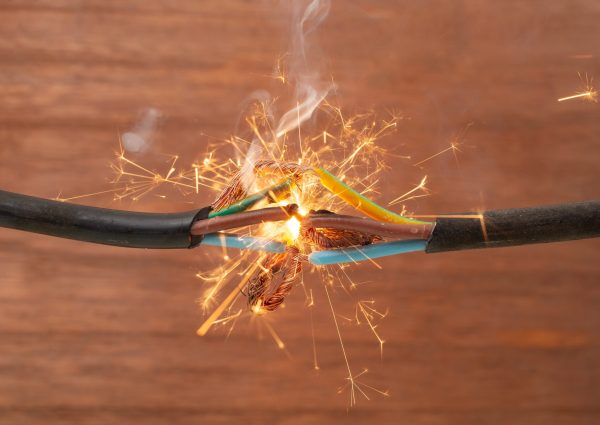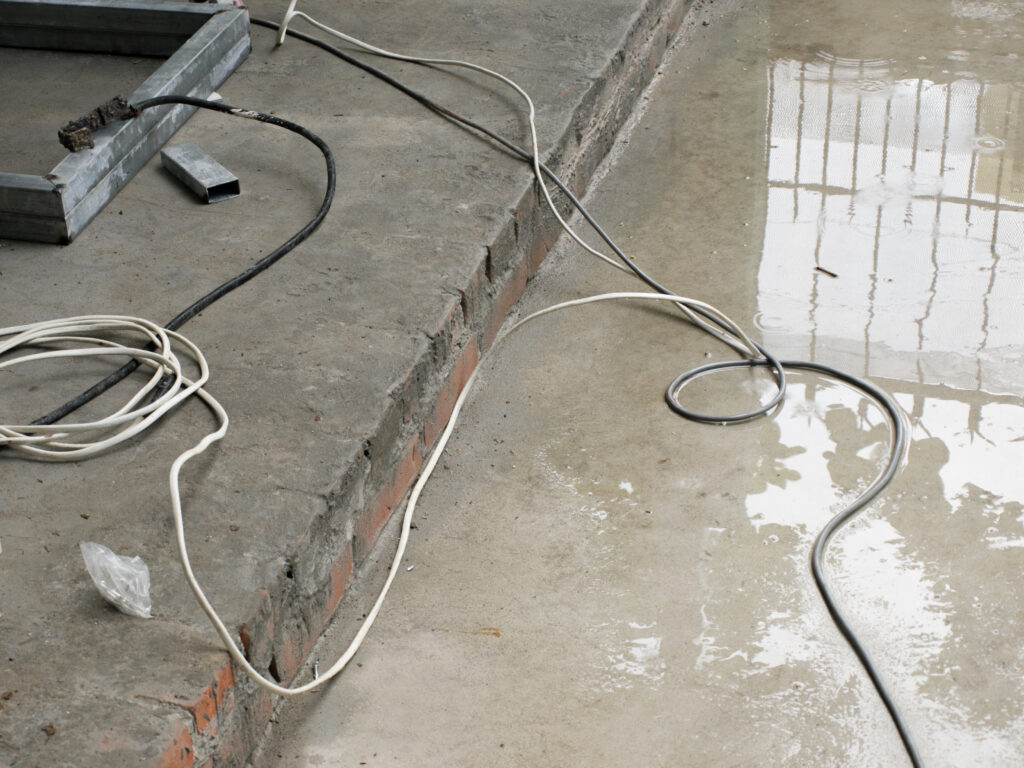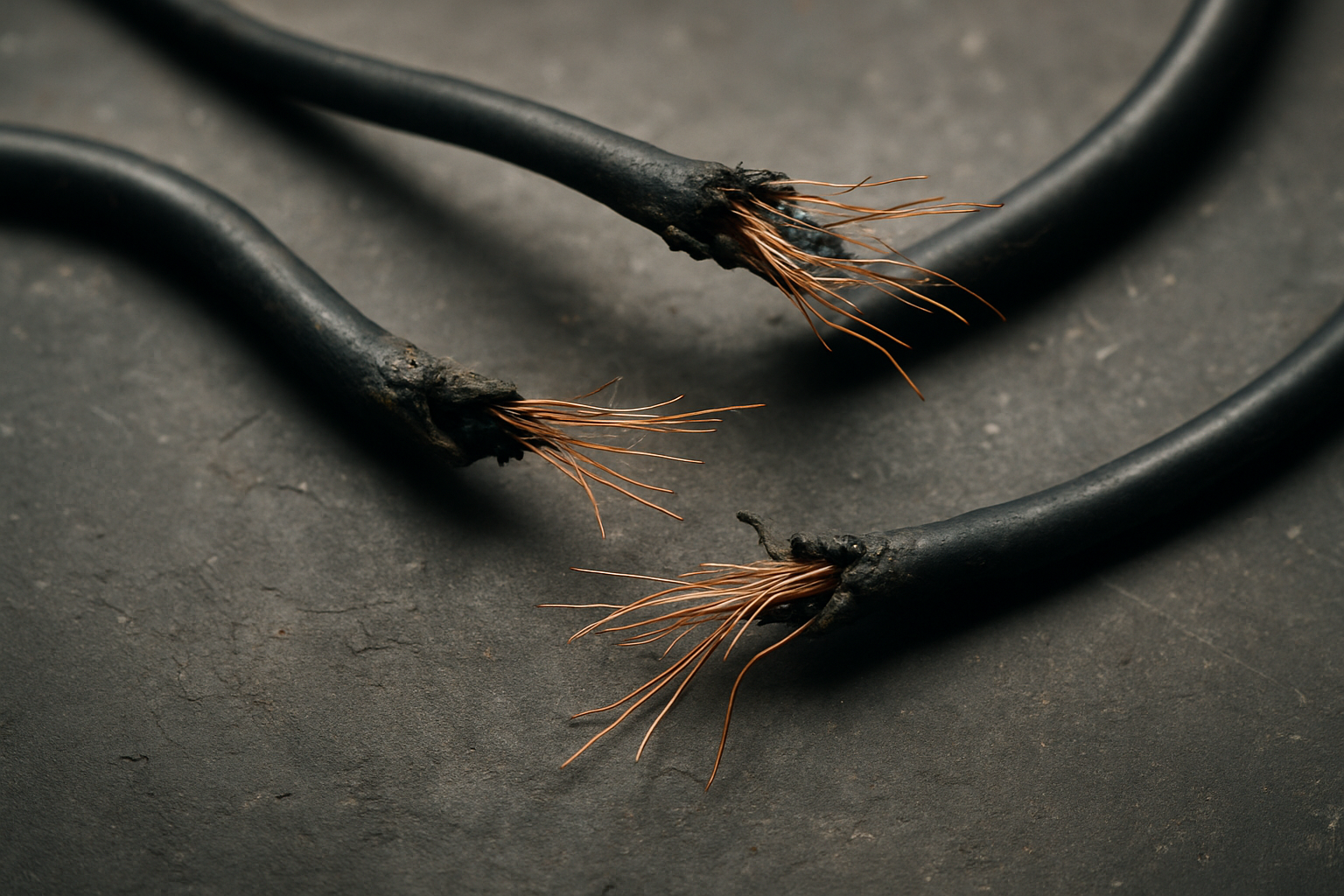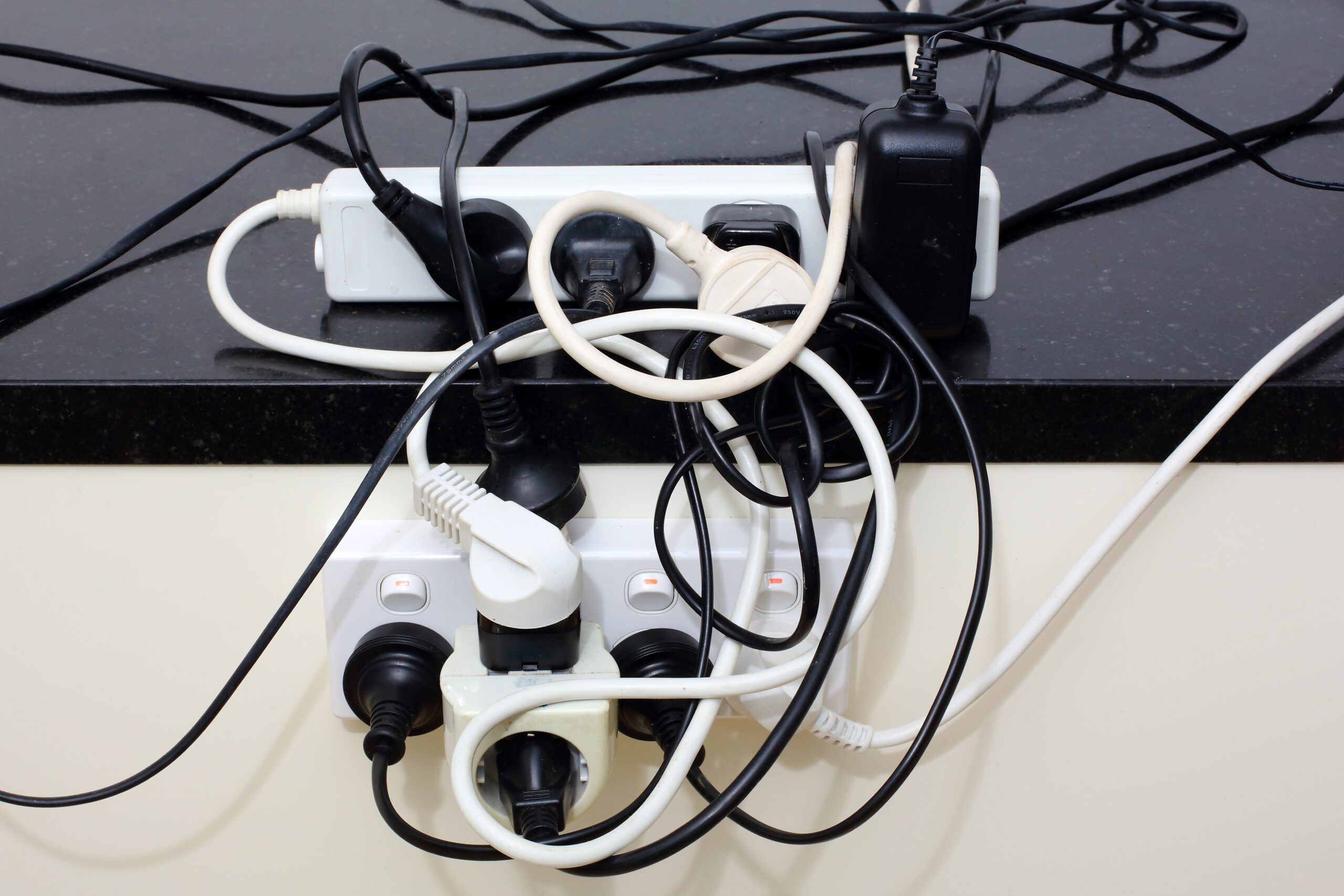Electrical Hazards
Key Concerns
Electrical hazards in the home can lead to shocks, burns, or fires, especially for older adults with slower reflexes or vision issues. Overloaded outlets, frayed cords, faulty appliances, and using electrical devices near water are common dangers. Warning signs like flickering lights or hot outlets should never be ignored, as they may signal a serious risk.

Sources

Electric Devices Near Water
If electrical wiring gets wet, this can be a huge problem. Be sure that there aren’t any electrical appliances near water no matter where it is in the home. Always make sure that wherever an electrical appliance is, the area is dry. This can cause fires and even the power to cut off around the home.

Damaged or Frayed Cords
Worn-out or cracked wires on appliances, lamps, or chargers can expose live electricity, posing a risk of electric shock or burns.

Overloaded Outlets and Extension Cords
Plugging too many devices into a single outlet or using multiple power strips can overload the circuit, leading to overheating, sparks, or electrical fires.
How to Limit & Avoid Electric Hazards
- Avoid overloading outlets—plug only one high-wattage appliance into each outlet.
- Use power strips with surge protection, but don’t daisy-chain multiple strips together.
- Inspect cords regularly and replace any that are frayed, cracked, or damaged.
- Keep cords away from high-traffic areas, under rugs, or across doorways to prevent tripping and cord wear.
- Never touch electrical devices with wet hands or use them near water (sinks, tubs, etc.).
- Install Ground Fault Circuit Interrupters (GFCIs) in bathrooms, kitchens, and laundry rooms to prevent shocks.
- Unplug appliances when not in use, especially toasters, space heaters, and irons.
- Keep electrical items away from flammable materials like curtains or bedding.
- Hire a licensed electrician to fix wiring problems—never try to DIY faulty outlets or breakers.
- Don’t use light switches or outlets that feel warm, make buzzing sounds, or spark.
- Label the circuit breaker box clearly and know how to shut it off in case of an emergency.
- Use nightlights in hallways to avoid plugging or unplugging items in the dark.
- Avoid extension cords as permanent solutions—have additional outlets installed if needed.
Frequently Asked Questions
Q.1 What are the most common electrical hazards in the home?
The most common hazards include overloaded outlets, frayed or damaged cords, using appliances near water, and faulty wiring. These can lead to shocks, burns, or even house fires.
Q.2 How can I tell if there’s an electrical problem in my home?
Signs include flickering lights, sparks from outlets, warm or buzzing switches, or a burning smell. These should never be ignored—contact a licensed electrician immediately.
Q.3 Are extension cords safe to use?
They’re safe for temporary use, but they should not replace permanent wiring. Never plug multiple extension cords together, and always check for damage before use.
Q.4 Why are GFCI outlets important?
Ground Fault Circuit Interrupters (GFCIs) help prevent electric shocks, especially in wet areas like bathrooms and kitchens. They shut off power when they detect a fault. Older homes may need to have them installed.
Q.5 Can I fix an outlet or replace wiring myself?
No. Electrical repairs should always be done by a licensed electrician. DIY repairs can be dangerous and may not meet safety codes.
Q.6 What should I do if an appliance cord is frayed or damaged?
Stop using it immediately and either replace the cord (if it’s removable) or the appliance. Taping over it is not safe and still poses a fire or shock risk.
References & Helpful Articles
- https://www.cdc.gov/natural-disasters/response/what-to-do-protect-yourself-from-electrical-hazards.html
- https://www.cdc.gov/niosh/docs/2022-141/2022-141.pdf?id=10.26616/NIOSHPUB2022141#:~:text=Always%20use%20lockout%20devices%20to%20prevent%20a%20circuit%20from%20becoming%20live.&text=Always%20put%20a%20tag%20on,should%20not%20turn%20it%20on.&text=Always%20be%20aware%20of%20equipment,disconnected%20from%20the%20power%20source
- https://www.cdc.gov/natural-disasters/response/what-to-do-protect-yourself-during-a-power-outage.html
- https://www.cdc.gov/niosh/docs/2022-143/2022-143.pdf?id=10.26616/NIOSHPUB2022143
- https://www.lakesideatmallardlanding.com/assisted-living-blog/electricity-safety-tips-for-an-elderlys-living-space/
- https://www.lung.org/clean-air/emergencies-and-natural-disasters/power-outages